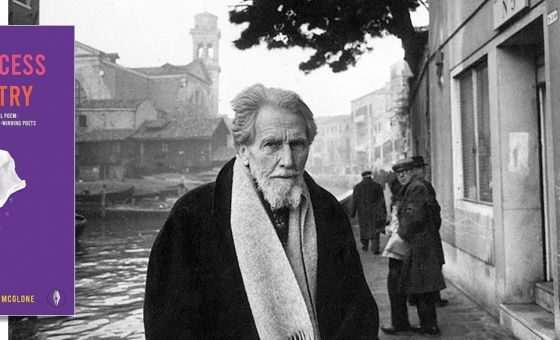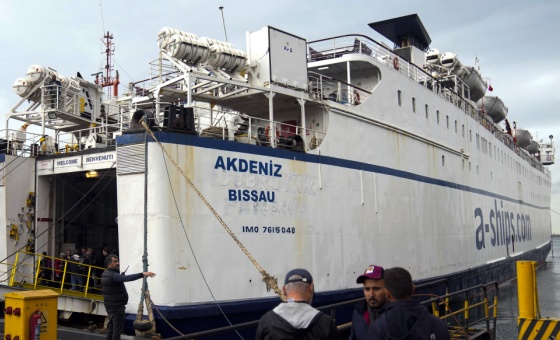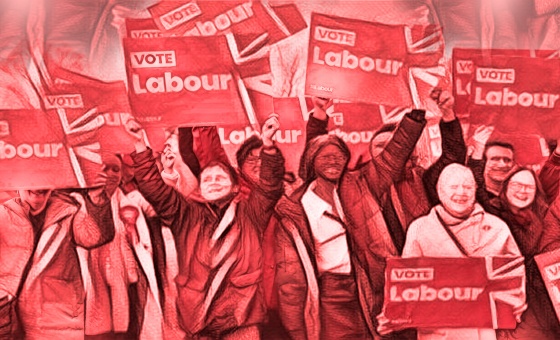This is the last article you can read this month
You can read more article this month
You can read more articles this month
Sorry your limit is up for this month
Reset on:
Please help support the Morning Star by subscribing here
AIRBNB sent me an email the other week with the subject line: “Experiences you don’t want to miss this week in London.”
It is one of many such emails from Airbnb which has expanded over the past year from the business of people renting out their homes as holiday spaces to the wholesale marketing and selling of experience. Yes, you read correctly, now you can pay Airbnb to live life. How novel!
The old expression,“I have a bridge to sell you” is actually a reference to George C Parker in addition to many other conmen from the bridge’s completion in 1883, such as Reed C Waddell, William McCloundy and the Gondorf brothers, Charles and Fred.
Various eras of con-men who “sold” the Brooklyn Bridge to unsuspecting victims, yet here we are today with Airbnb selling experience and seemingly having some success in the process as many proselytize its “wares” in the media.
Here are some of the predictions by Airbnb for successful experiences in 2019: horse yoga, meditation and hiking, wine tasting or what I like to call “drunk yoga,” a focus on carbs with pizza and pasta, tie-dye is back (did it ever go away?), and excursions to old places.
Imagine that — flight magazines and friendly conversations with people who have been to Luxor Valley or Marie Laveau’s tomb in New Orleans where travel advice once given for free events are now outdated forms of social exchange and journalism.
Where magazines used to give tips on sightseeing spots and markets to visit — events that were generally accessible without money exchanging hands — now you can skip travel journalism and friends’ recommendations and just go straight to Airbnb to get a recipe for how to live your life for a fee. What’s not to like?
Skip to the scene in Total Recall where Arnold Schwarzenegger is watching the news and Sharon Stone takes the remote control, aims it at the wall where a news programme appears, and suddenly the wall transforms itself as the trompe-l’œil of a nature scene.
This sort of simulation of the real, just as Jean Baudrillard envisaged, is now here. But instead of quaint, artificially constructed backdrops, we are given the Internet of all things “real” whereby verbal recommendations of movies and places to visit once part of social conversation and journalistic recommendations are now the domain of automated apps that tell you what to do with your spare time, all beholden to the new monopolies of “experiential” tourism.
Sure, some Airbnb experiences are in fact classes or tours, as the site elaborates: “Airbnb Experiences are activities designed and led by inspiring locals. They go beyond typical tours or classes by immersing guests in each host’s unique world. It’s an opportunity for anyone to share their hobbies, skills, or expertise without needing an extra room.”
Sounds fair and fun, right? But then, scroll further down and you are given the bold type of “Meet interesting people” with a large number of the “experiences” which are simply free encounters that are now being commodified as product.
But ask yourself this: why would I leave the real world to go online to “meet interesting people”? Is this about facilitating “experience” or commodifying life?
After reading through quite a bit of these experiences, I was sad to see that indeed it is the latter. Where Airbnb correctly asserts that this is a platform to start a business with no overhead costs, is Airbnb really in the business of marketing experience any more than every single thing we do in the day is an “experience”?
I mean if this is the bar of experience, I am very tempted to host an “experience” called “Come and clean my house today!” and get people to pay me for the favour.
All this calls up a few simple questions. First, can we really market experiences as a niche brand of living? If you are thinking, “Yes, Airbnb already has,”
I would invite you to imagine a year or two ahead and wonder if this trend might become as dated as Myspace.
Then there is the more poignant question of what does an Airbnb experience offer that real life does not and why the price tag for that which was formerly free advice for mostly free events?
Aditi Shrikant writes of Airbnb’s skipping out on government regulations while offering classes called “live like a local” when there is very little “local” about these experiences.
One marketing ploy supplants another’s lack of business acumen while offering a readymade website creator with a ready-made client base. But does this an experience make? Or, might this be Airbnb’s flailing attempt to shore up travellers’ every movement from one flight to the next, cashing in on what these bodies do once they step outside the flat they have rented for a week in Paris?
This, in turn, brings up the age old questions regarding the meaning of life and experience. The philosophical concept of experience, ἐμπειρία (empeiría), is characterised by Immanuel Kant in his Critique of Pure Reason (1781).
Thus the link between living and knowledge is implicit in this form of empiricism, similar to science, which he views as a posteriori knowledge. Yet, human experiences are not in and of themselves a science. That is, they are not meant to be the same, turned into a “control group” as if part of a laboratory experiment.
The question we must ask ourselves then is why we are allowing ourselves to be transformed into guinea pigs of capitalism instead of simply throwing caution to the wind — where real experiences thrive.
Instead of Airbnb “experiences,” we ought to have a real experience where we walk about the city centre, being the strangers that we are, while allowing our experiences to be dictated by chance, whim, and complete and utter loss?










